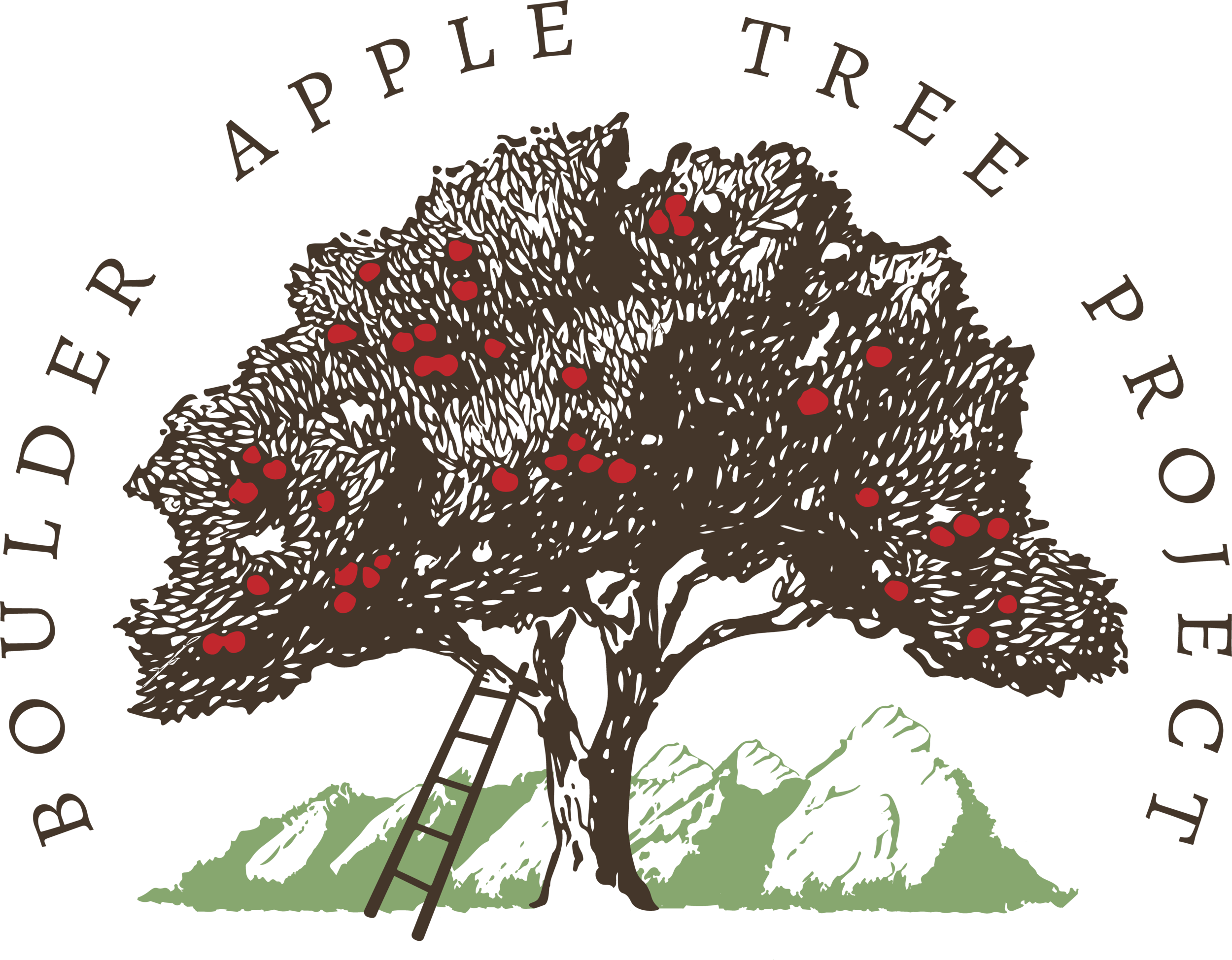The Boulder Apple Tree Project recognizes the negative cultural and societal associations of apples for some communities throughout Colorado.
The Boulder Apple Tree Project acknowledges that the historical planting of apple orchards as part of land colonization and associated Western agricultural practices has resulted in westward expansion of non-Native cultures and crops, enabling the devastating displacement of Native peoples, cultures, and (pre)existing ecosystems. Our study area includes the ancestral and current homes of the Arapaho, Cheyenne, Ute and many other Native American nations and tribes. The existence and survival of indigenous populations did not require apples or westward expansion: indigenous ways of knowing and practices resulted in the development of cultures that were – and continue to be -- rich, self-sufficient, and advanced. We recognize that western agricultural practices contributed to the forced removal of Native peoples from their ancestral lands and traditional territories.
We also acknowledge that history has been told from a dominant narrative (i.e., that of European colonizers), such as the “legend” of Johnny Appleseed as the person who brought apples across America. In reality, apples came to the Americas in the 1600s with colonizers, and many Indigenous populations began planting apple trees and establishing orchards. We recognize the importance of the original stewards who continue to inhabit and connect with this land, and hope to understand the impacts of orchards for current populations and ecosystems with a changing climate.
Apples, homesteading laws around orchard development, and colonization caused far more harm than benefit to the Indigenous populations who already occupied the entirety of the Americas. Thus, we believe that we have a social responsibility to:
Highlight contributions from Native ways of thinking/knowing in terms of agriculture, medicine, and science into our research and course components,
Work to learn more about the history of the apple sites that we use in order to better understand the impact that orchard establishment may have had on the people who steward this land and the existing ecosystems.
To use our positions as educators and researchers to discuss these historic and current inequities so that their impacts are more widely understood.
Employ the resources at our disposal (e.g., grant funds, educational tools, field equipment) with care to not further the harm caused by European colonizers and take opportunities to use these resources to support individuals from marginalized cultures, especially those who identify with various groups of Native peoples.
*written in collaboration with the researchers from APPLE R Net and the REACH Lab

